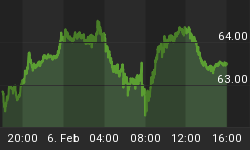Today's better than expected manufacturing reports from China, the Euro Zone, the U.K, and the U.S. seem to indicate that investors have accepted the possibility that the global economy may have righted itself and is now poised to improve even further.
Because of these recent friendlier economic events, Forex traders may begin to focus on central bank activity this month rather than just the economic reports. On Thursday, August 6, the Bank of England and the European Central Bank each meet to discuss their current interest rate policies and to release their outlooks for the recovery.
The market seems to have already accepted the possibility that the Bank of England will announce the end to its asset-buyback program. The European Central Bank is likely to leave interest rates unchanged, but renew its hawkish economy. It seems that almost anytime there is talk of an economic recovery, the ECB reintroduces its stance on the possibility of inflation.
The U.S. Fed meets on August 12th. This will be its first meeting since June and there will be a lot to talk about including the recovery from the recession and possible discussion of an exit strategy. Recently Bernanke said an exit strategy is difficult to time but with new economic information to work with since the last meeting, he may offer more clarity at the next meeting.
Looking at the markets today, the GBP USD surged to the upside on a surprise increase in a key manufacturing report. While investor gains have been limited recently because of talk of the U.K.'s huge budget deficit, this currency pair continued to maintain a bullish tone until the buyers finally showed up the past week.
The EUR USD finally crossed its June top after holding in a range for almost two months. Appetite for risk helped encourage traders to buy the Euro to take advantage of the higher yield. Gains may be limited if the ECB comments on the high price of the Euro and its possible negative effects on Euro Zone exports.
The strong surge in energy products and equities helped drive the USD CAD sharply lower. Like the Euro, the Bank of Canada may issue a comment regarding the rapid rise in the Canadian Dollar and its possible negative effect on Canadian exports. The Bank of Canada does not meet this month so any statement from the BoC is likely to carry some weight.
Strong demand for higher yielding assets helped trigger an upside surge in the AUD USD and the NZD USD. Look for the trend to continue as long as there is an appetite for increased risk. Since Australia and New Zealand both rely on exports to drive their economies, watch the exports numbers to see if the high prices are having an adverse effect.















